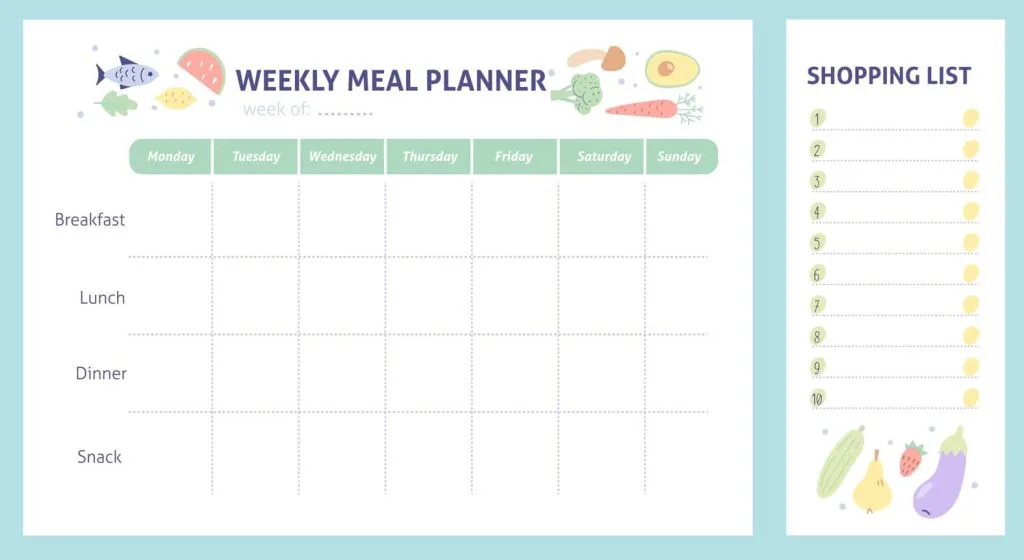Do you find yourself too lazy to eat? Hunger is one of the strongest instincts, and simple laziness cannot defeat it.
You are constantly battling hunger, so you avoid food or eat only when necessary.
You may have no appetite and may be bored with preparing food and think you do not have time for it.

The average person can survive without food for between 1 and 2 months. It is individual to each person how long they can go without food.
Various factors influence it. But the consequences of not taking food appear much earlier. The heart, gastrointestinal, central nervous, and endocrine systems suffer.
The damage we can cause to ourselves if we don’t eat is enormous.
Let’s ignore that it is tasty and tempting; food is fuel for our bodies. We cannot function normally without food.
And now the question is: Why are you too lazy to eat? There may be other reasons, some more serious than simple laziness.
It’s easy to say you’re lazy without looking at all the facts. In this article, we will look at all the reasons that can influence you to avoid food and try to give some advice on how to change it.
You don’t prioritize food
Food is not high on your list of priorities. Of course, you don’t need to think about food all day, but this way, you can starve yourself unintentionally.
You don’t live to eat, you eat to live, but shouldn’t food be at least a little higher on the priority list. Food is energy, and you need that energy to complete all other obligations you consider a priority.
You don’t have good time management and organizational skills
This can refer in general not only to food. You would like to eat well and have an appetite, but something always comes up.
Because of bad time management, you never eat at the same time and often skip meals. You usually plan a nice lunch, but in the end, you have to settle for fast food while rushing to get to work.
You are a picky eater
Do you have a certain number of foods you like and don’t like to try new flavors? You may be a picky eater.
When we are children, we are often very picky regarding food. Some people carry this pattern of behavior into adulthood.
You should eat what you like, but it’s never good to be limited to anything, especially food. Who knows what fantastic tastes you miss out on because you decided that way.
You hate preparing food

A quality lunch takes a long time to prepare, you eat it for 10-15 minutes, and then you have to clean it all up.
You want to eat, but the thought of all those dishes afterward puts you off. That’s why you often skip meals.
Maybe you’re just bad at preparing food, and it doesn’t interest you, so you avoid spending time in the kitchen.
Eating disorders
Eating disorders are a range of psychological conditions that cause unhealthy eating habits to develop and negatively affect a person’s physical or mental health.
There are many eating disorders, such as anorexia, bulimia, and binge eating disorder, but avoidant/restrictive food intake disorder is essential for our topic.
Avoidant/restrictive food intake disorder(ARFID) is associated with the “picky eater” term discussed above, but this problem is much deeper and more complex.
People suffering from ARFID are avoiding certain foods or types of food. They also have a restricted intake of the overall amount eaten food.
Reasons for refusing food include taste, smell, texture, etc. There is also fear due to past experiences with that food, such as choking or food poisoning.
This serious condition can lead to consequences such as nutrient deficiency, irregular heart rate, low blood pressure, general weakness, and many more.
Mental health problems

Eating disorders are mental health illnesses, but cognitive problems not directly related to food can also cause difficulties in eating and avoiding food.
Depression, anxiety, borderline personality disorder, obsessive-compulsive disorder, and stress affect food intake in different ways.
Most often, they force people to avoid food and lose their appetite. Opposite examples are also possible, so some people who suffer from these disorders overeat.
We have listed the reasons why people usually avoid food. If you have found yourself in them, here are 7 tips on how to change that:
Make a meal plan

We start with small steps. Make a list of those foods that you love the most.
If you think you have an allergy to some food, it won’t hurt to do a food intolerance test. That way, you will know which food to avoid.
When you have a clear meal plan, it’s easier to stick to regular food intake.
Treat food as a priority
Regular and quality food must be high on your priority list.
No matter how busy you are, you can always make time for food without an excuse.
Hey, you need the energy to complete all those duties, don’t you? Food is that energy, so make it a priority.
Make preparing food easy and accessible
So that the well-known situation does not happen to you, when you are tired just thinking about preparing food, it’s best to make it as easy as possible.
We all know the kitchen is often messy, but try to make it neat. Keep all dishes, appliances, and kitchen accessories within easy reach.
Try different food and diets
If you are already so bored with your current way of eating, why not try something new? There are over 100 different diets, and something has to be perfect for you.
Some diets can be too extreme and restrictive. The best advice is to not go on extreme diets.
Maybe a change in diet will rekindle your love for food.
Think of your diet as a bank account and good food choices as good investments.
Try eating healthy
Eating healthy is always a good option. When you are already starting the process of loving food again, why not choose the most nutritious choices?
Junk food is easy, but healthy food is always a better option in the long run.
Exercise more

It doesn’t matter what sport or physical activity you do, your body will burn calories that it wants to compensate for later. This is where we come to hunger and an increased desire for food.
Consult the therapist
If you think your problem is more serious, it is best to visit a psychiatrist.
Eating and mental illnesses are disorders that require professional help and potential therapy.
Final thoughts,
“Food is as important as energy, security, and the environment. Everything is linked together.”
― Louise Fresco
Do not restrain yourself from something as important as food. Your body is a perfect machine that needs the perfect fuel for the best performance.
There are solutions, just find the one that is best for you, and with small steps, you will reach progress. Bon appetit!
